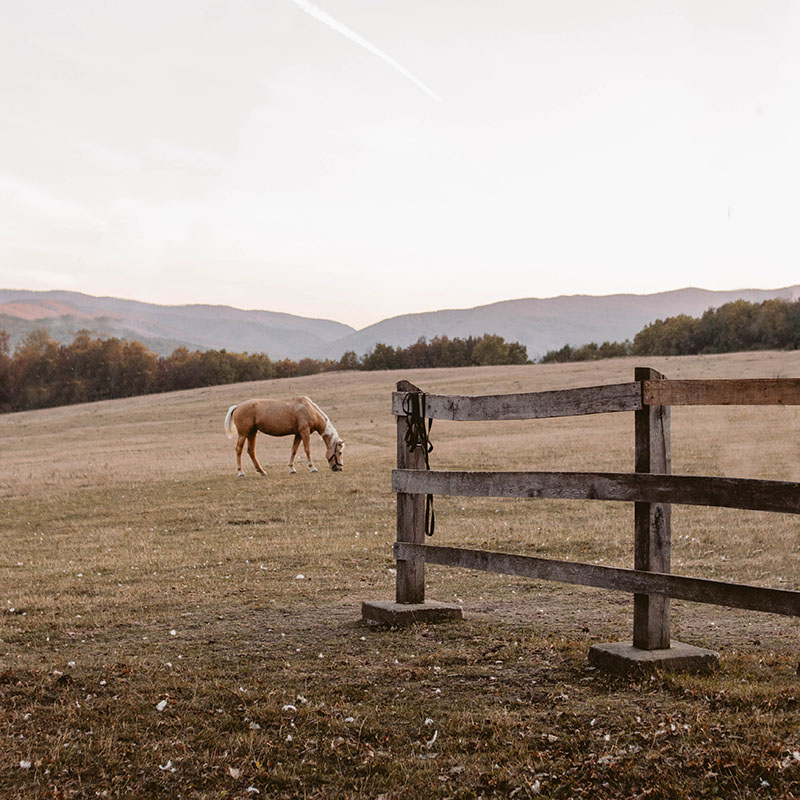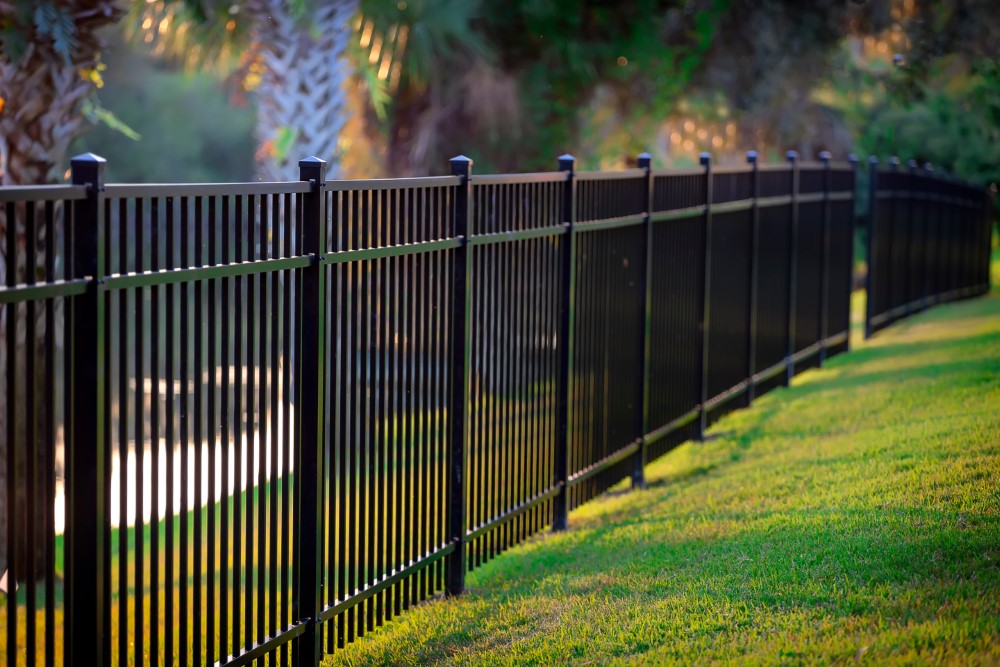
The Best Types of Fences for a Ranch
Fences play a pivotal role in agriculture, allowing farmers to establish boundaries for livestock and their land. Without fencing, animals would be free to roam the land and be more susceptible to theft and harm from predators. Thus, fencing remains a core component of any ranch or farm. But with so many fencing materials available, which ones are the best types of fences for a ranch?
When choosing a fence for your ranch, you want it to be durable and affordable to secure a broad expanse. And of course, it must be attractive enough to complement the beauty of your ranch property!
With many different fencing options available, it can be overwhelming to choose the perfect one for your property. Thus, we’ve taken the guesswork out for you! Read on for our guide to the best types of fences for a ranch.
Wood Fences
Traditionally, wood was the best choice for ranch fencing. Depending on where the farm was located, the lumber was often cut and milled right on the property. However, the wood used for fences a century ago came from hardwood trees that are no longer readily available. Instead, the wood at lumberyards is typically a softer wood that requires diligent upkeep.
In humid climates, a wooden fence has a life expectancy of about 20 years. It will require regular maintenance, including painting or staining every few years. Without dedicated maintenance, a wooden fence will suffer.
Alternatively, pressure-treated lumber can last about seven years without painting or staining but carries a higher price tag than untreated lumber. Nowadays, wood is rarely used for perimeter fencing of large pastures. However, its strength makes it a good choice for small pastures, handling facilities, and paddocks. It also makes an affordable choice for riding arenas. Read on for a couple of great options for wood fences for your ranch.
Cedar Split Rail
When people think of fencing on ranches, they are often picturing cedar split rail fences. While cedar split rail fences can be used on any property, their rustic look fits perfectly on a ranch. This fencing type can be used throughout the perimeter of the property, or as enclosures for cattle, horses, and pets.
Cedarwood is extremely durable, making it a great fencing material. However, cedar’s most notable quality is its wearability. As cedar ages, it continues to hold up against animals and weather conditions. And it still looks great, too!
Metal Fences
For many ranch owners, metal fencing is a great option. Specifically, chain link offers many benefits, especially for agricultural fencing. Chain link fencing is very easy to install, which cuts down on costs. This is especially helpful for farms and ranches, which require lots of fencing throughout the property. Read on to see why chain link fences are one of the best types of fences for a ranch!
Chain Link Fences
Chain link fences also offer a lot of versatility and variability. Essentially, it can be used in various layouts and designs, being suitable for virtually every type of farming fencing.
The openings in chain link fences are available in various sizes and farmers generally benefit from smaller opening sizes. This is because animals like goats love to climb fences, so the smaller the opening the more difficult this is.
The same applies to keeping predators out, with it being difficult to climb for coyotes, foxes, and wild dogs. Chain link fences can be installed at various heights too, which can further help with this issue.
Fencing needs to be very strong to keep animals outside and inside of the boundaries. And chain link is as strong as it gets. High-grade chain link with a thick diameter is very stable and won’t be easy to knock over. This is especially helpful when dealing with large and rowdy cattle like a bull.
Similarly, the fencing posts for chain link fences are made of strong metal materials. Thus, further improving their overall strength and stability.
Another benefit for ranchers is that chain link fencing is safe for animals. Unlike certain other types of fencing, namely barbed wire and electric fences. Chain link fences don’t have sharp points that can graze the skin of animals. And the chain link weave is very difficult to get tangled in, which is important for the safety of horses.
Chain link fencing is also very low maintenance, to the point where almost no repairs will be needed. Because chain link fences are galvanized, they don’t rust over time. And their strength and durability make them very difficult to damage, meaning less time and money spent fixing broken parts.
Other Fences
Vinyl Fences
When synthetic fencing first hit the market in the 1970s, it didn’t have a great reputation. These lighter-weight materials were known for failing or looking shabby after a few years in the sun. But the class of synthetic fencing that’s been around for the last decade has improved tremendously. Many vinyl/PVC fences now often come with a lifetime guarantee against discoloration, rusting, peeling, rotting, or splintering.
Vinyl fencing is strong and attractive. They come in a wide variety of styles, and the material is great for protecting animals because it’s durable and has a little give. Vinyl fences tend to cost a bit more upfront, both for materials and installation. However, with their longevity, their long-term cost is very reasonable. Because of its higher cost, vinyl fences are most often used for horses. And sometimes for more exotic animals, like llamas, alpacas, or emus, residing in suburban areas! If you have a small ranch or a rach in a more suburban area, a vinyl fence can be a great investment.
Horse Rail
In case the name doesn’t make it obvious, horse rail fences are a perfect solution for horses! This is a newer fence design that looks similar to cedar split rail fences. But instead of using split cedar, horse rail uses vinyl or dimensional lumber. The vinyl is installed similarly to a cedar split rail fence, with gaps in between the rails.
However, because horse rail fences are vinyl, this fencing choice is very durable and low maintenance. Vinyl rarely requires repairs and can easily last 30 years.
Although vinyl horse rail is very low maintenance, it is more of an aesthetic solution than a practical one. Horses can be very rough on a fence, in which case you may opt for the sturdier lumber choice.
Cattle Panels
Cattle panel fences mix metal and wood. This fencing is typically used for livestock enclosures, but you can install them around your property perimeters as well. This fence combines galvanized square panels and frames them in western red cedar. The metal panels give the fence an industrial look, while the cedar brings the rustic charm a ranch needs. This creates the perfect aesthetic and functional balance to bring to your property.
Bottom Line
You invest time, money, and pride in your ranch property. Thus, you need to protect your investment with a quality fence. You need a fence that will withstand natural elements and potential damage from animals – both domestic and wild! While there are many fencing solutions available on the market today, there are only a few that will qualify as great ranch fences.
Fencing can be overwhelming with the variety of options available on the market today, but hopefully, this blog post has given you a better idea of the best types of fences for a ranch. Give us a call today to get your ranch fencing project started!
